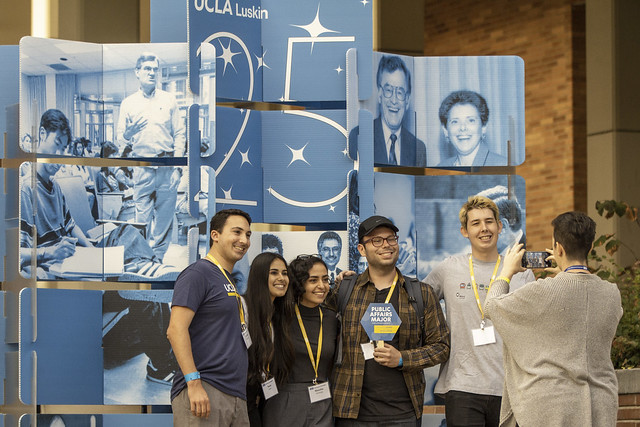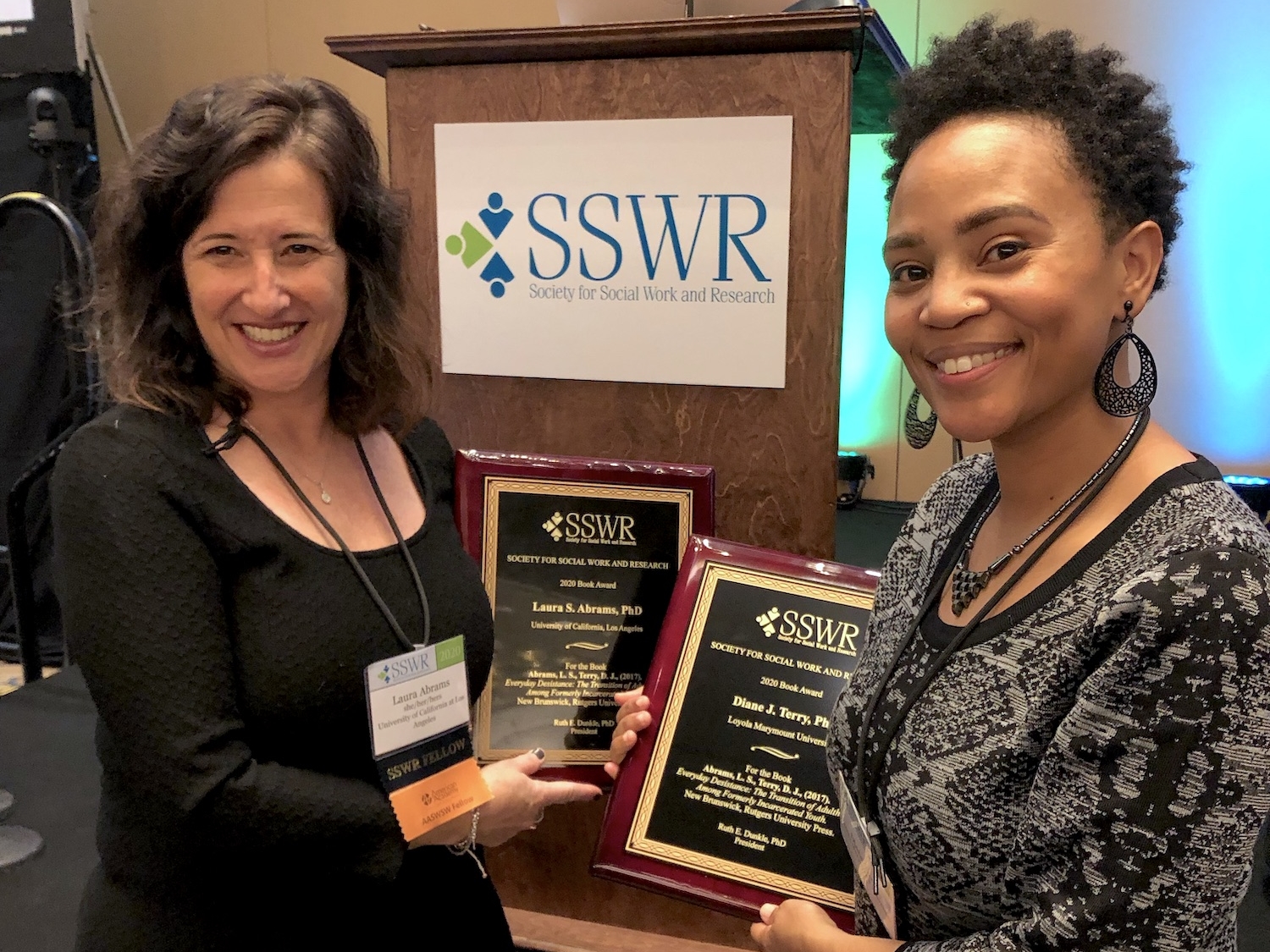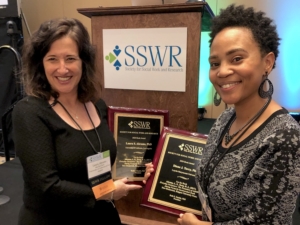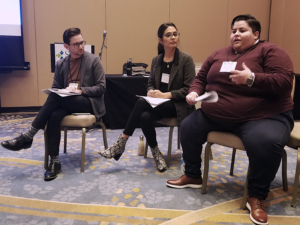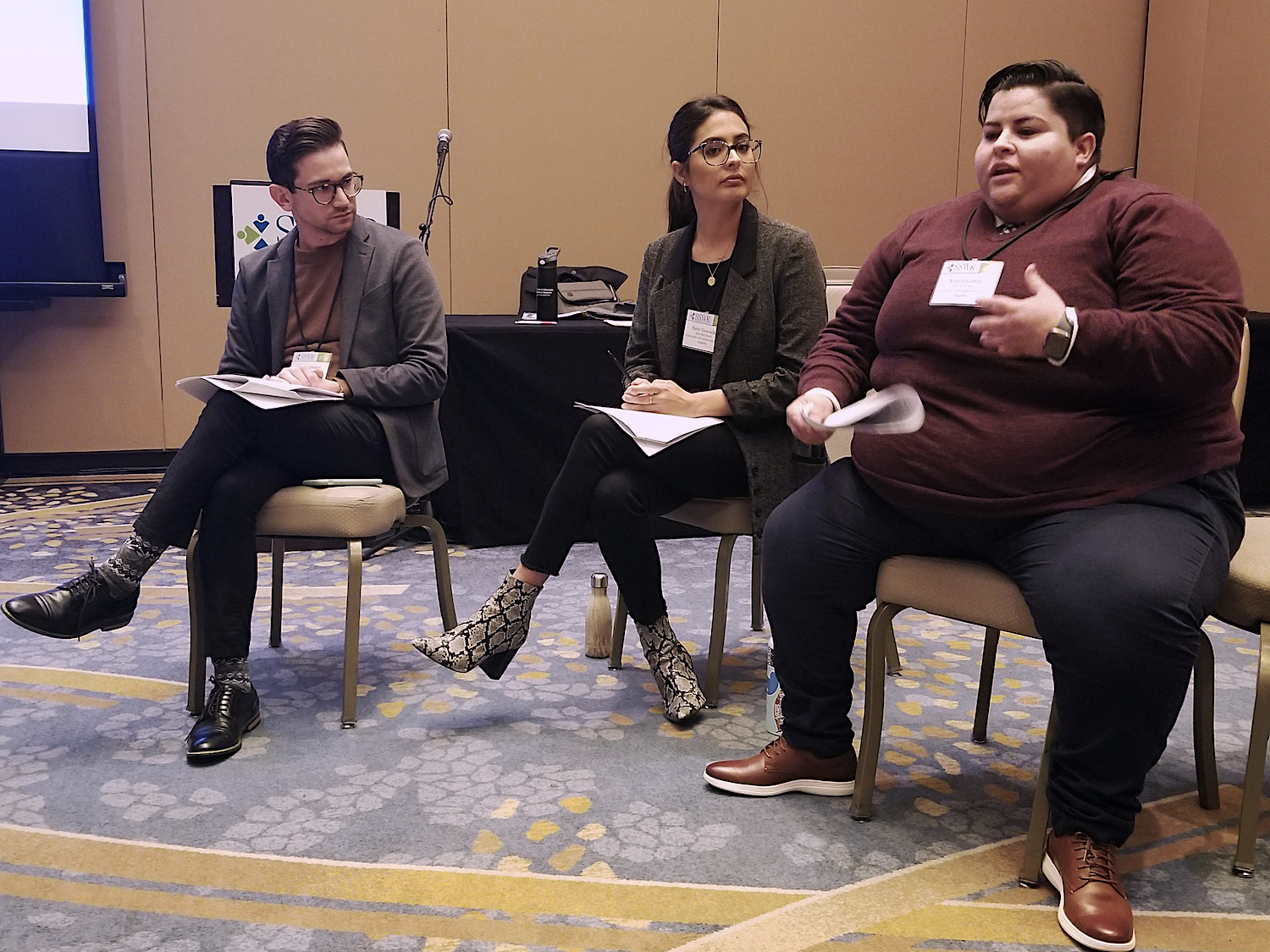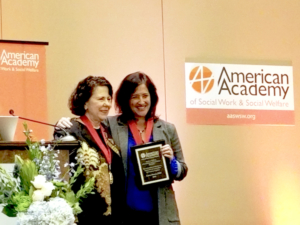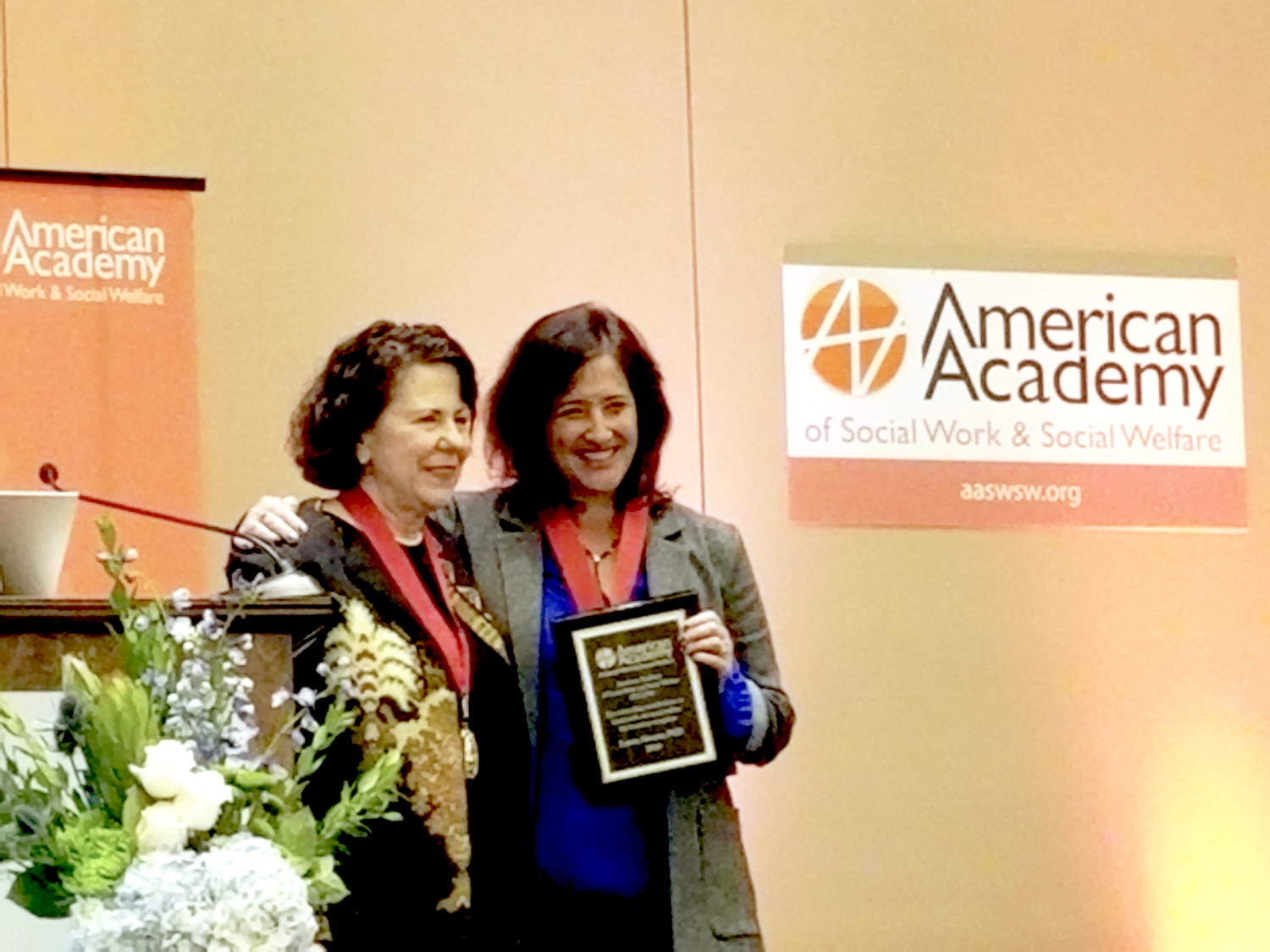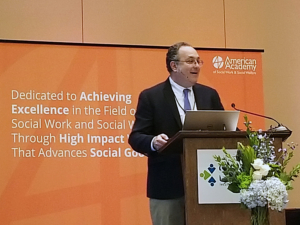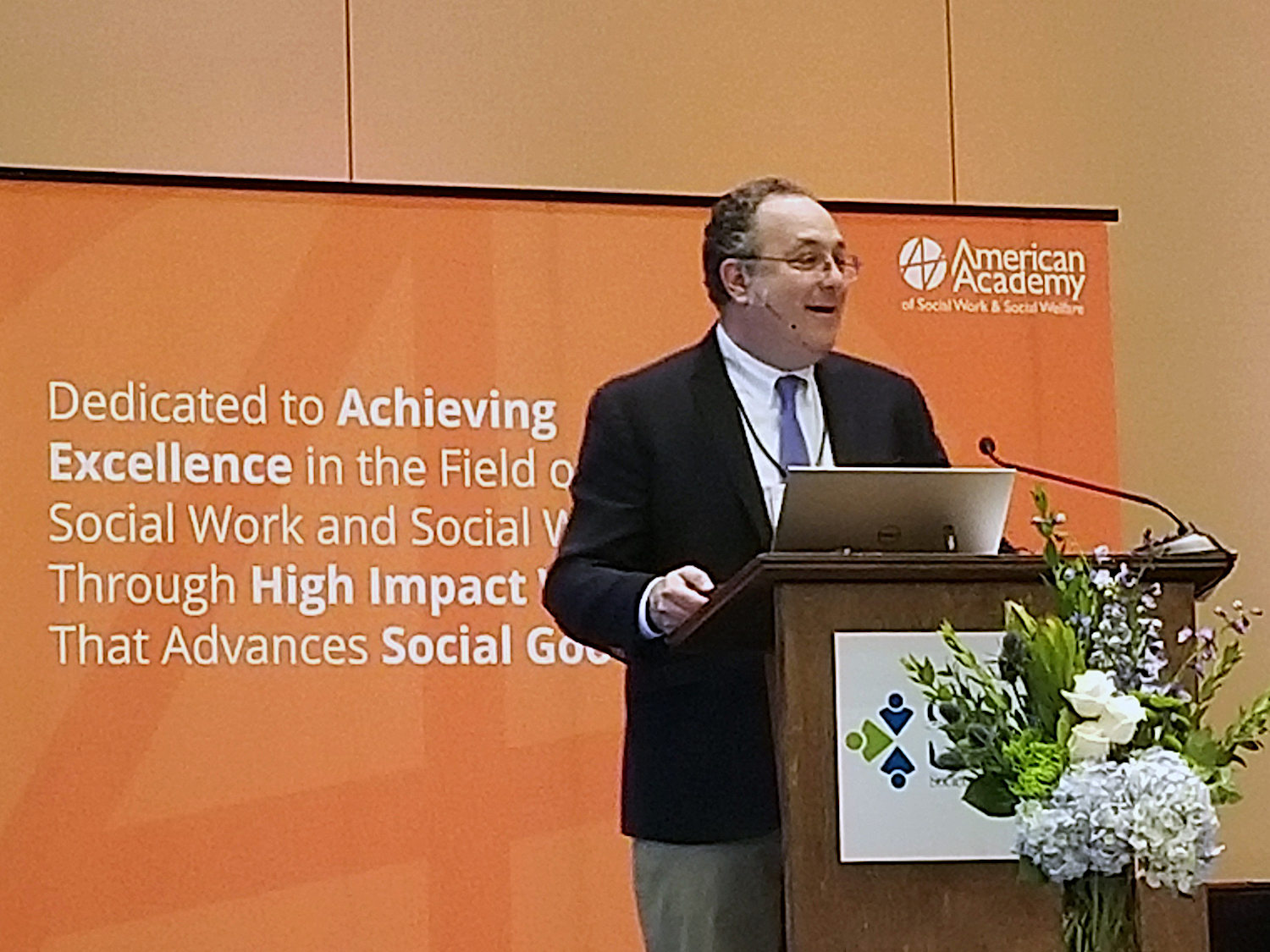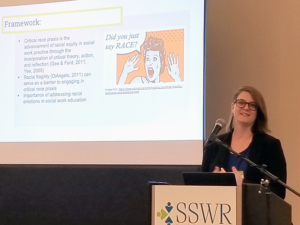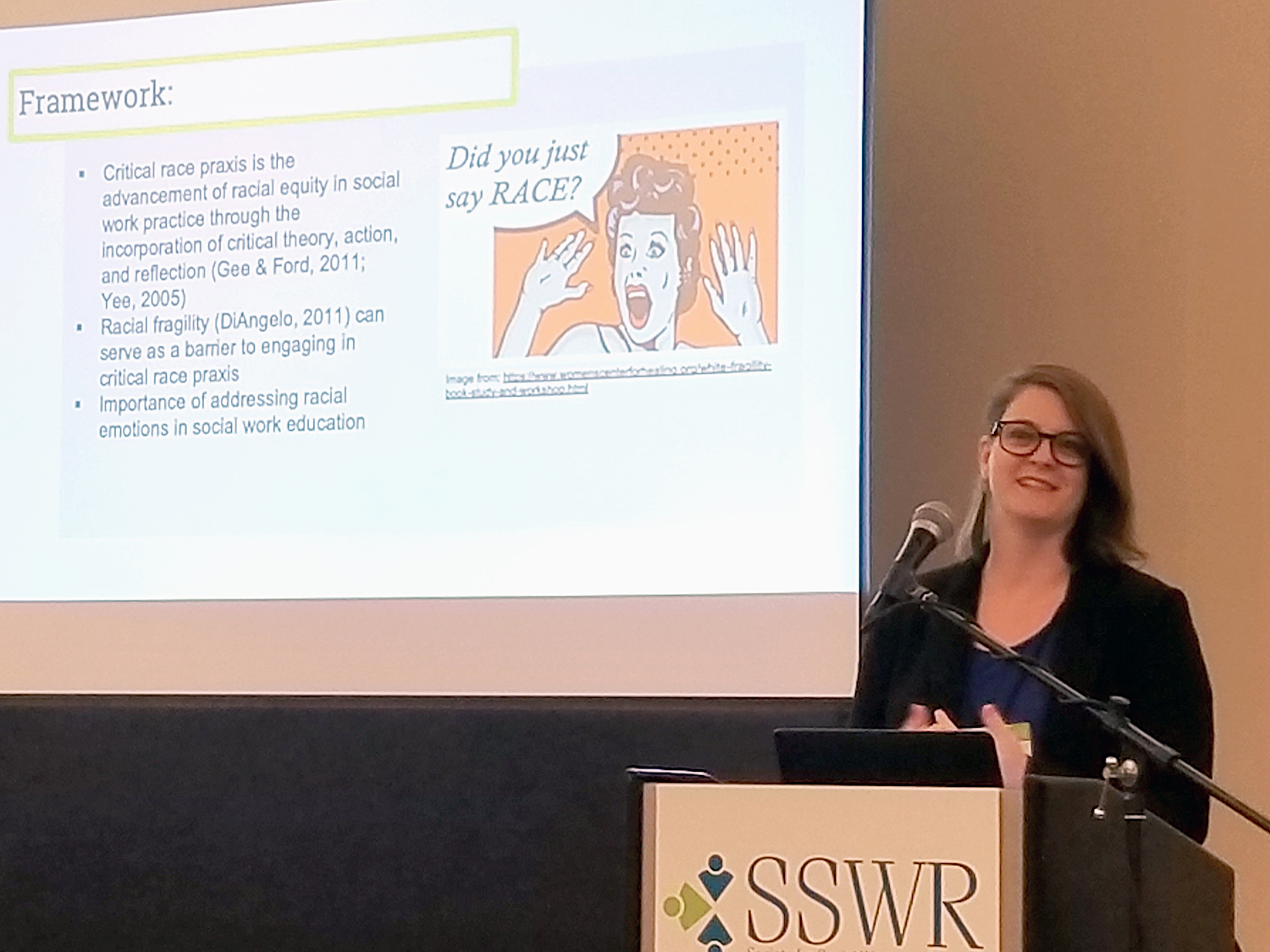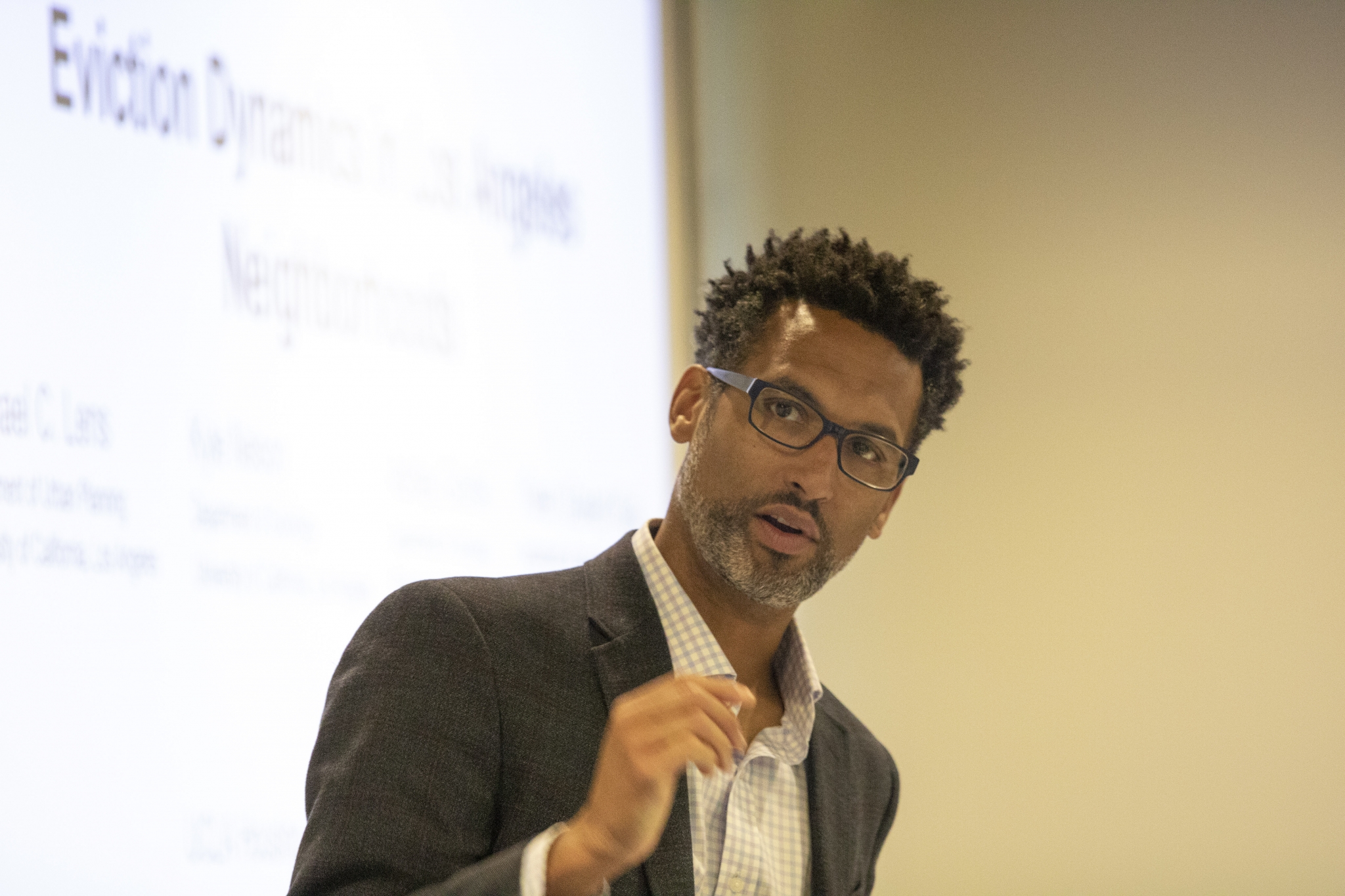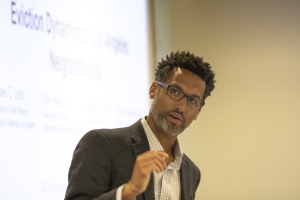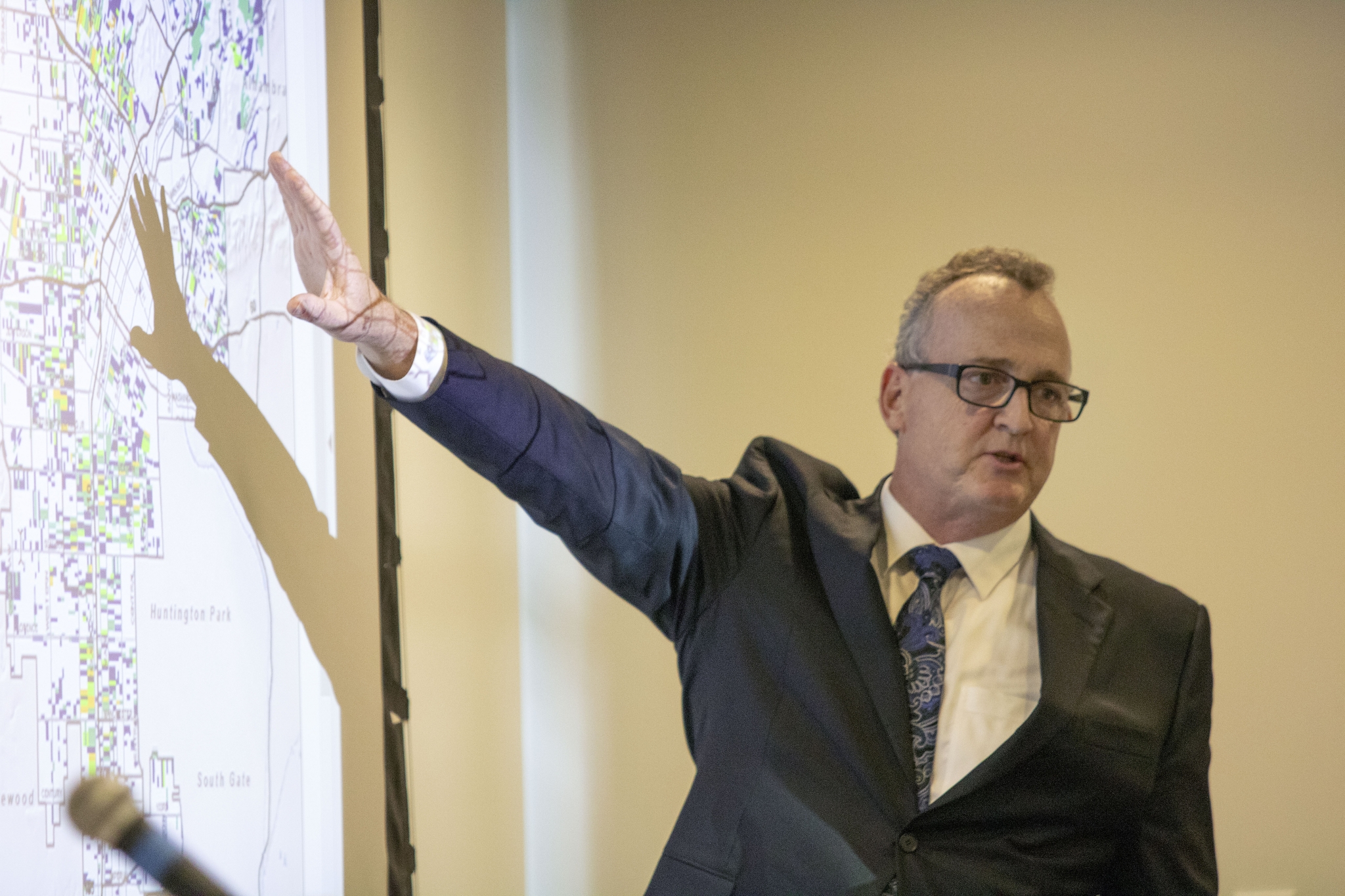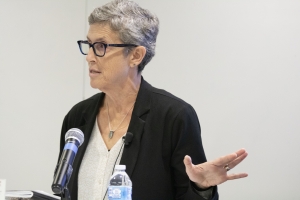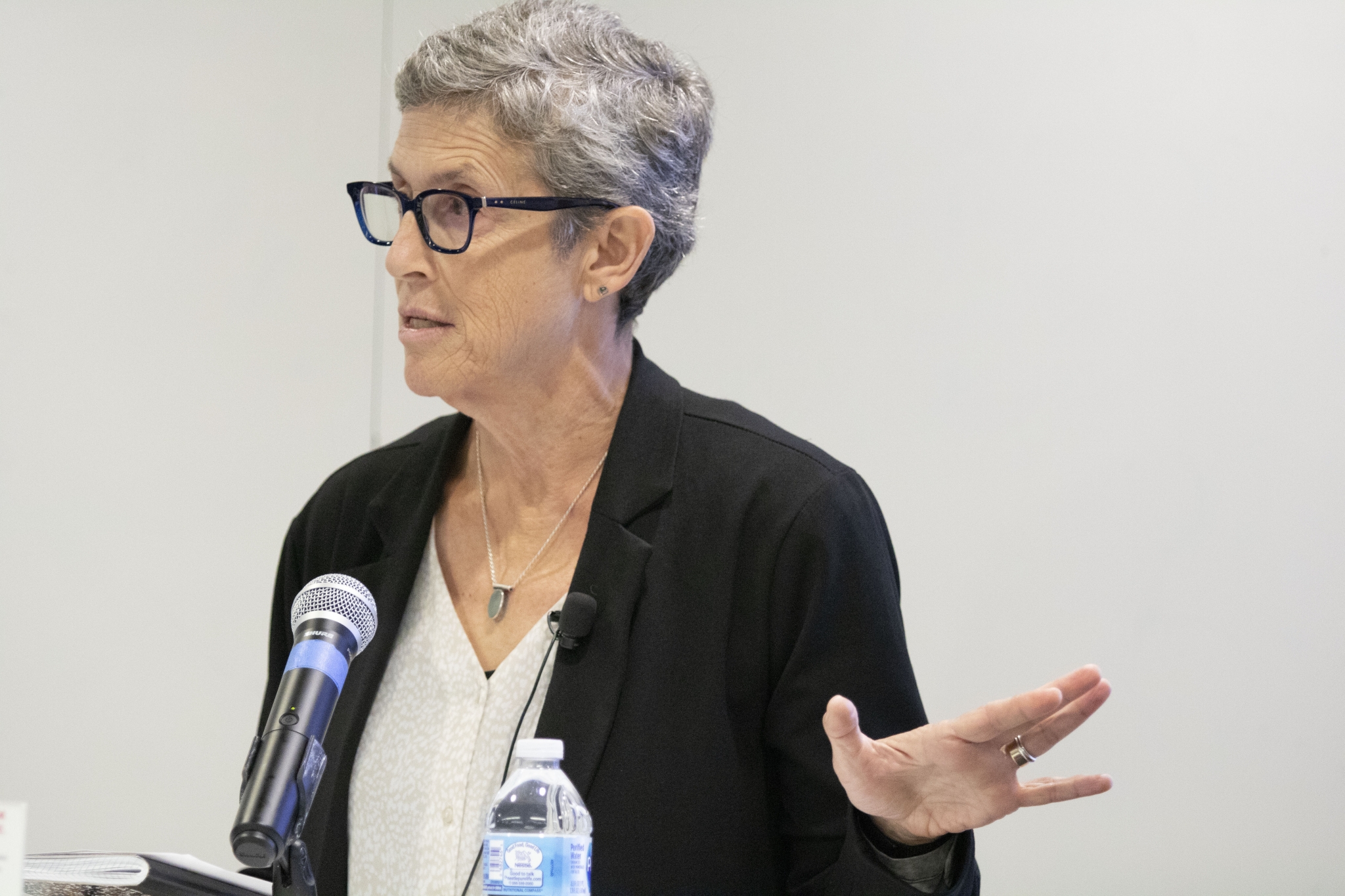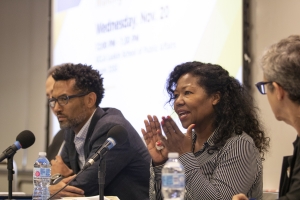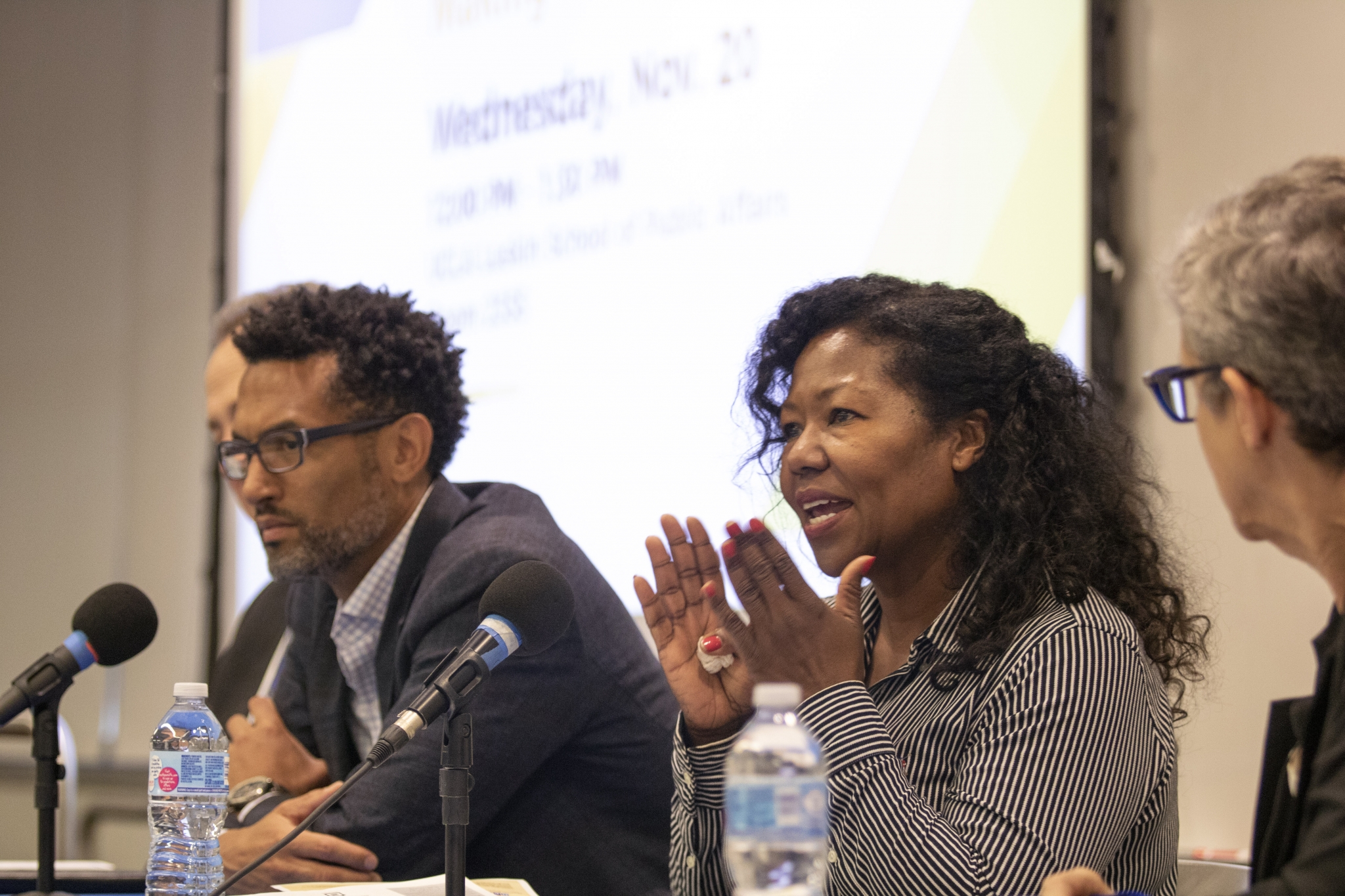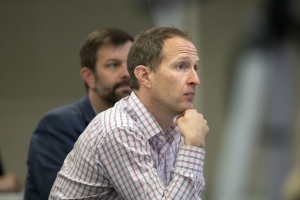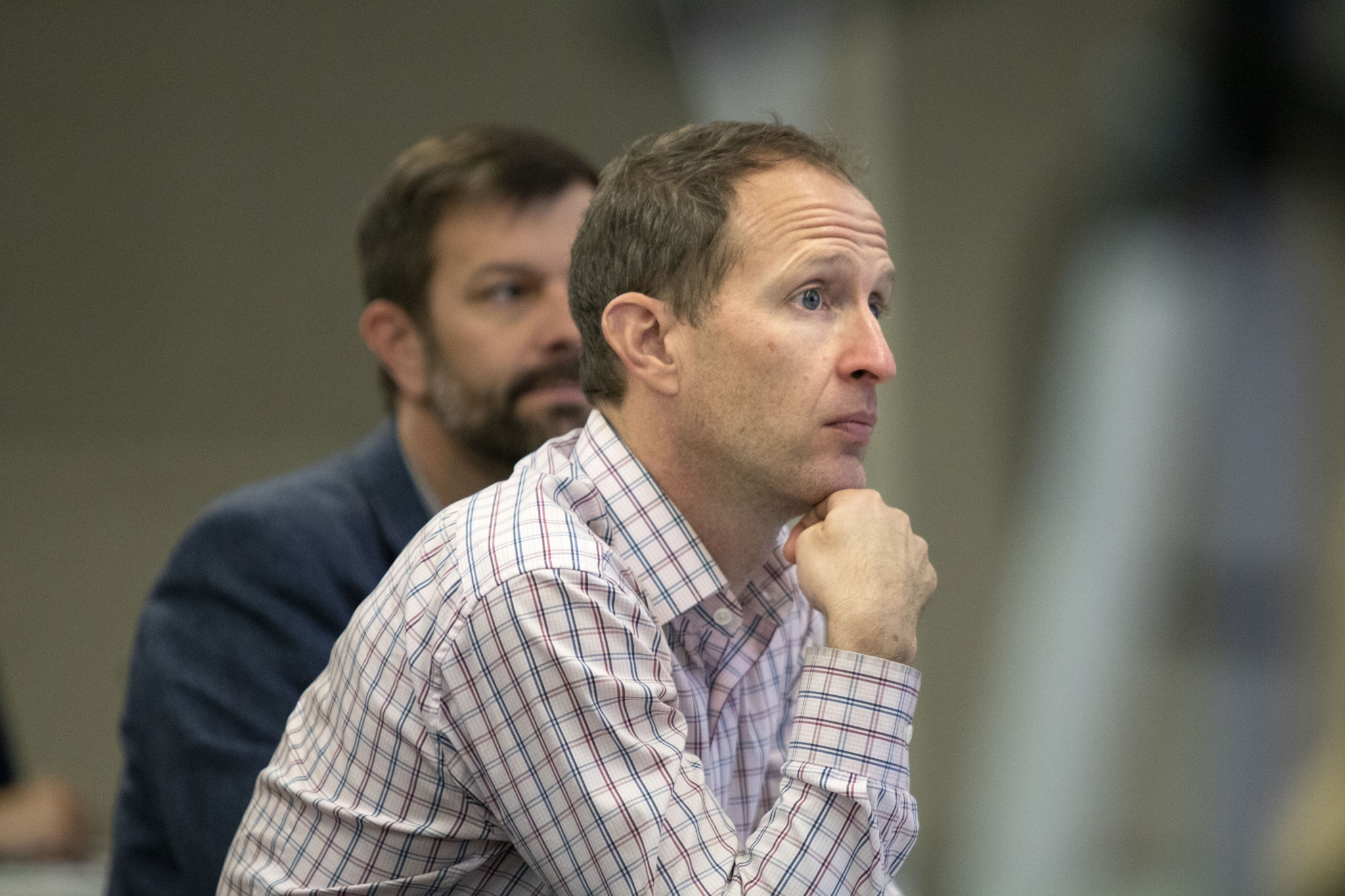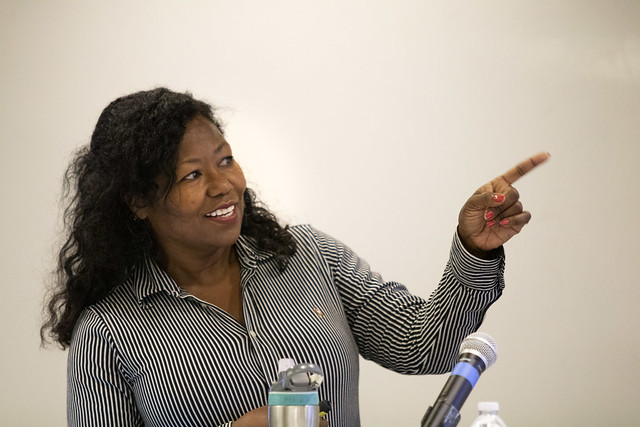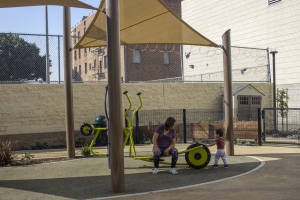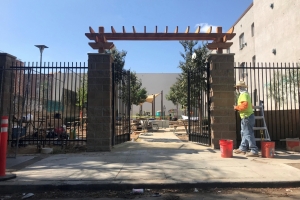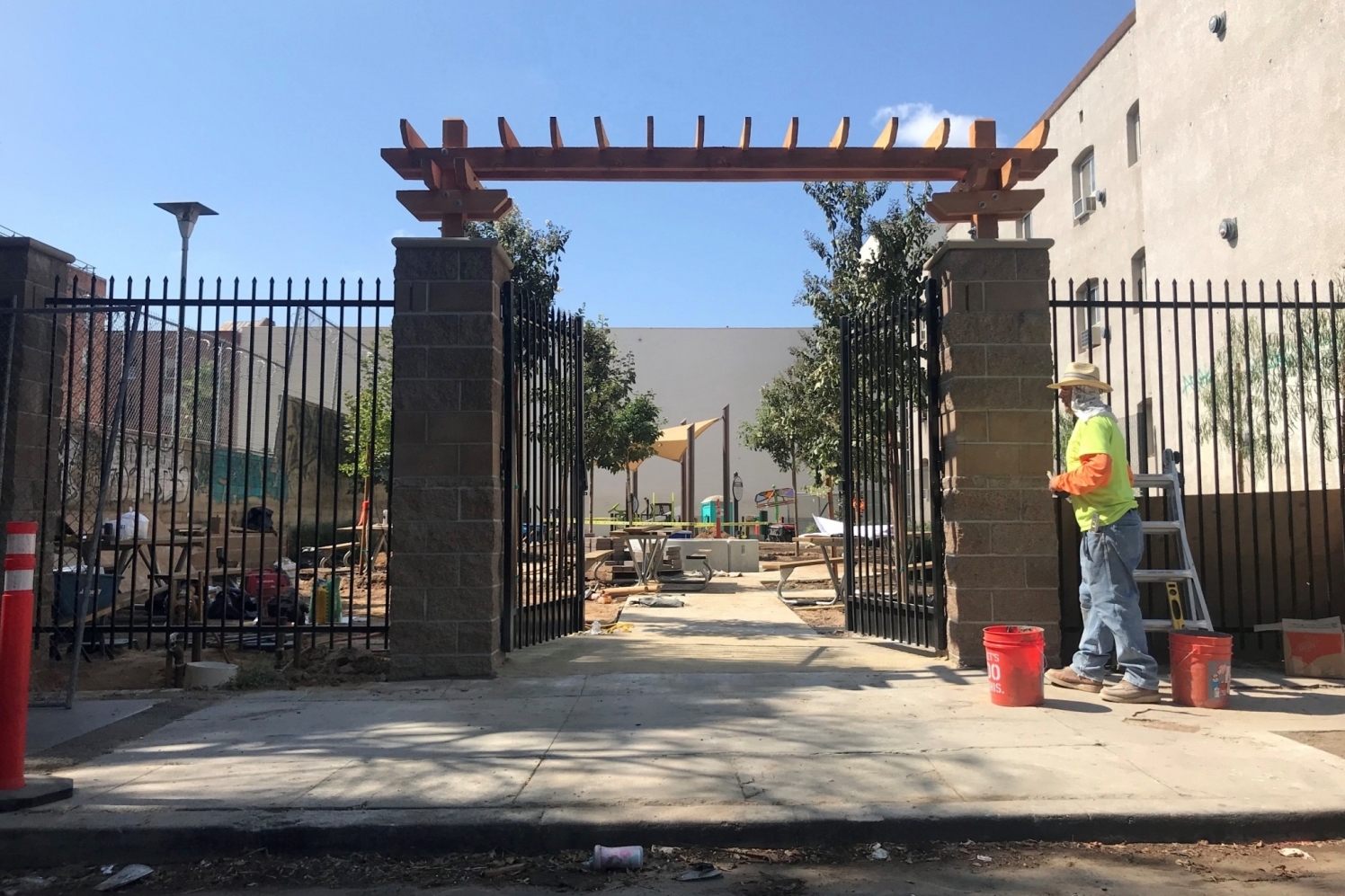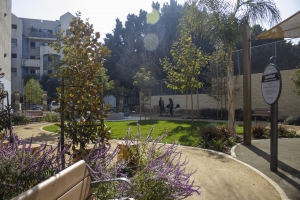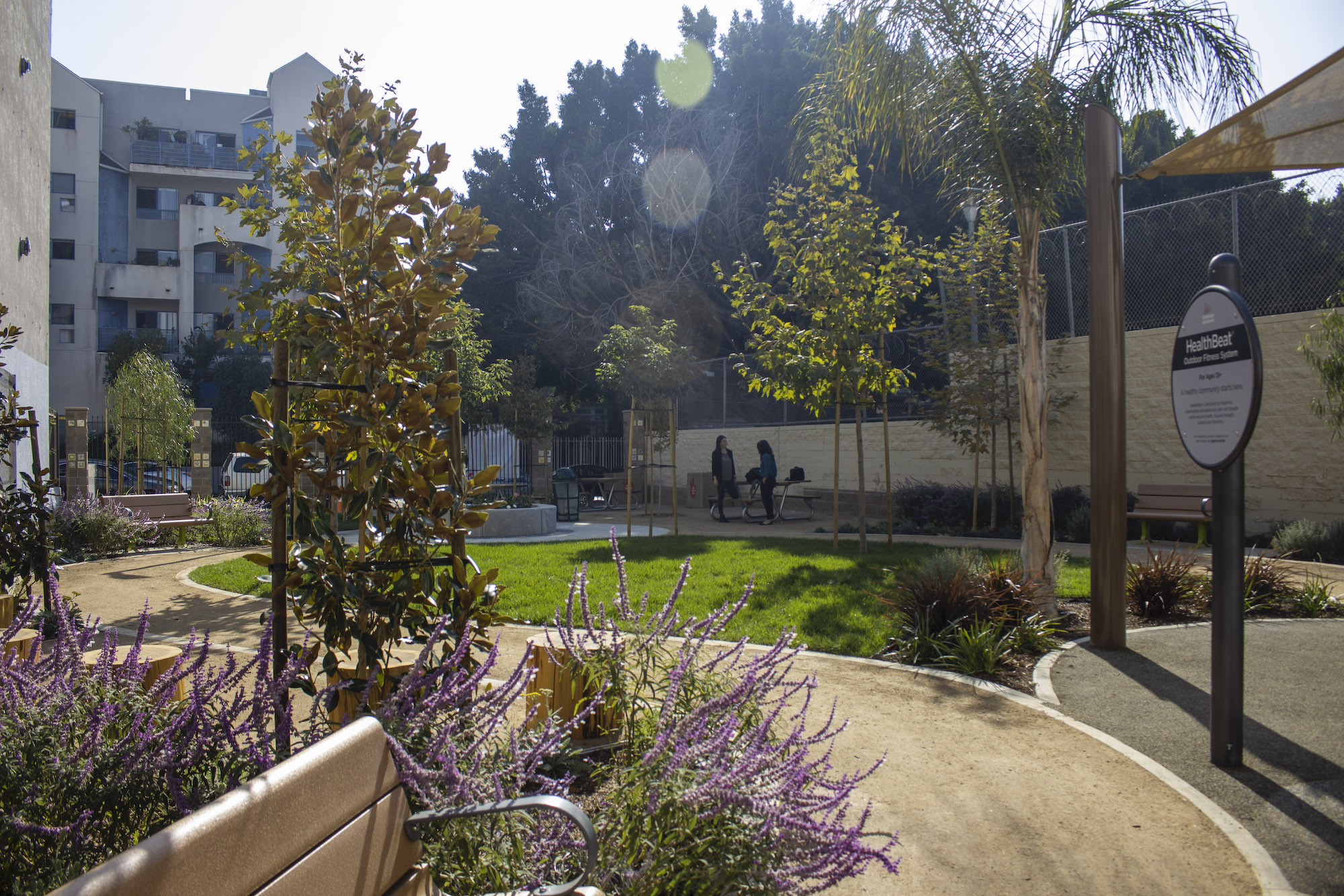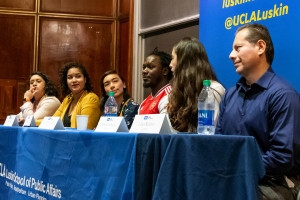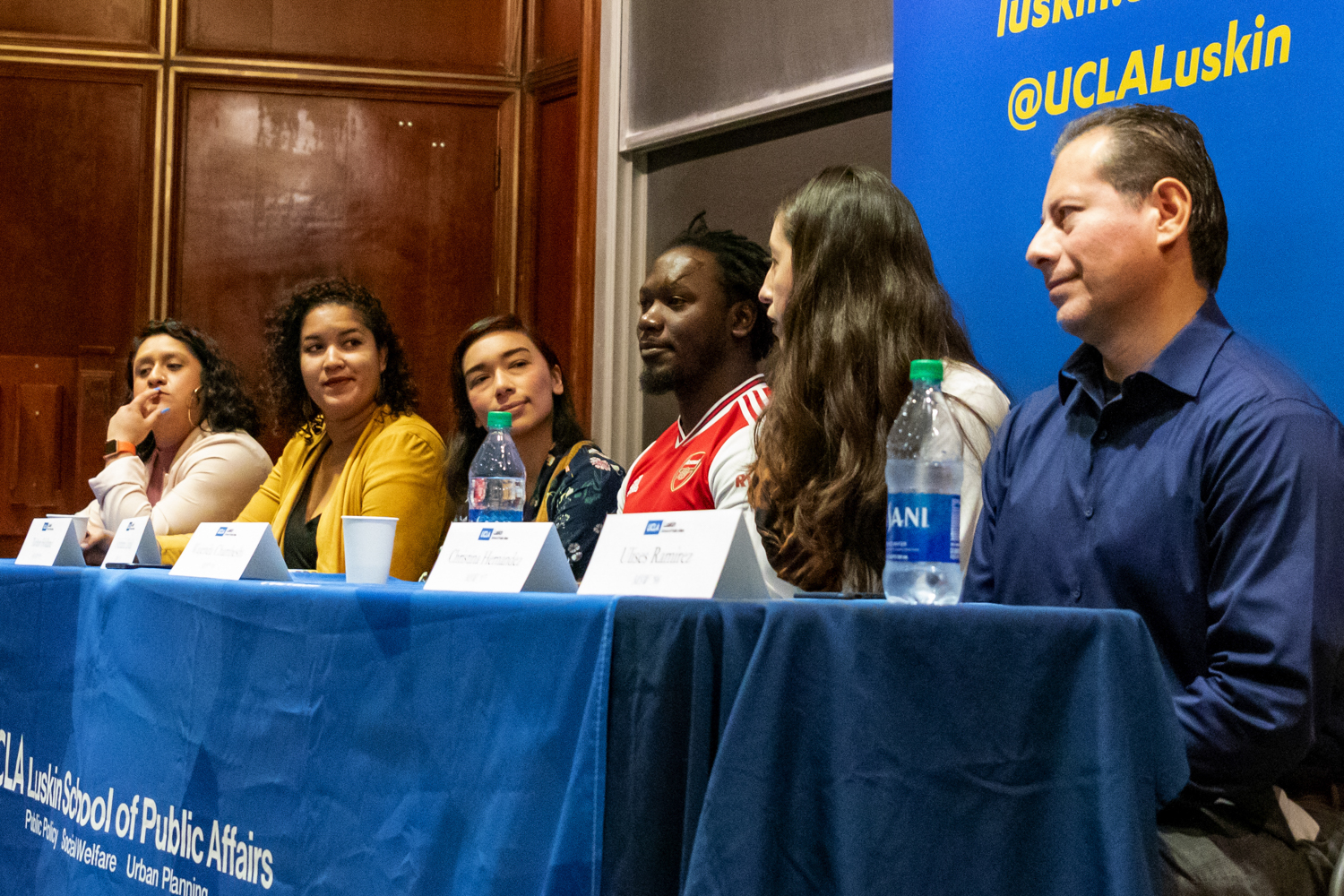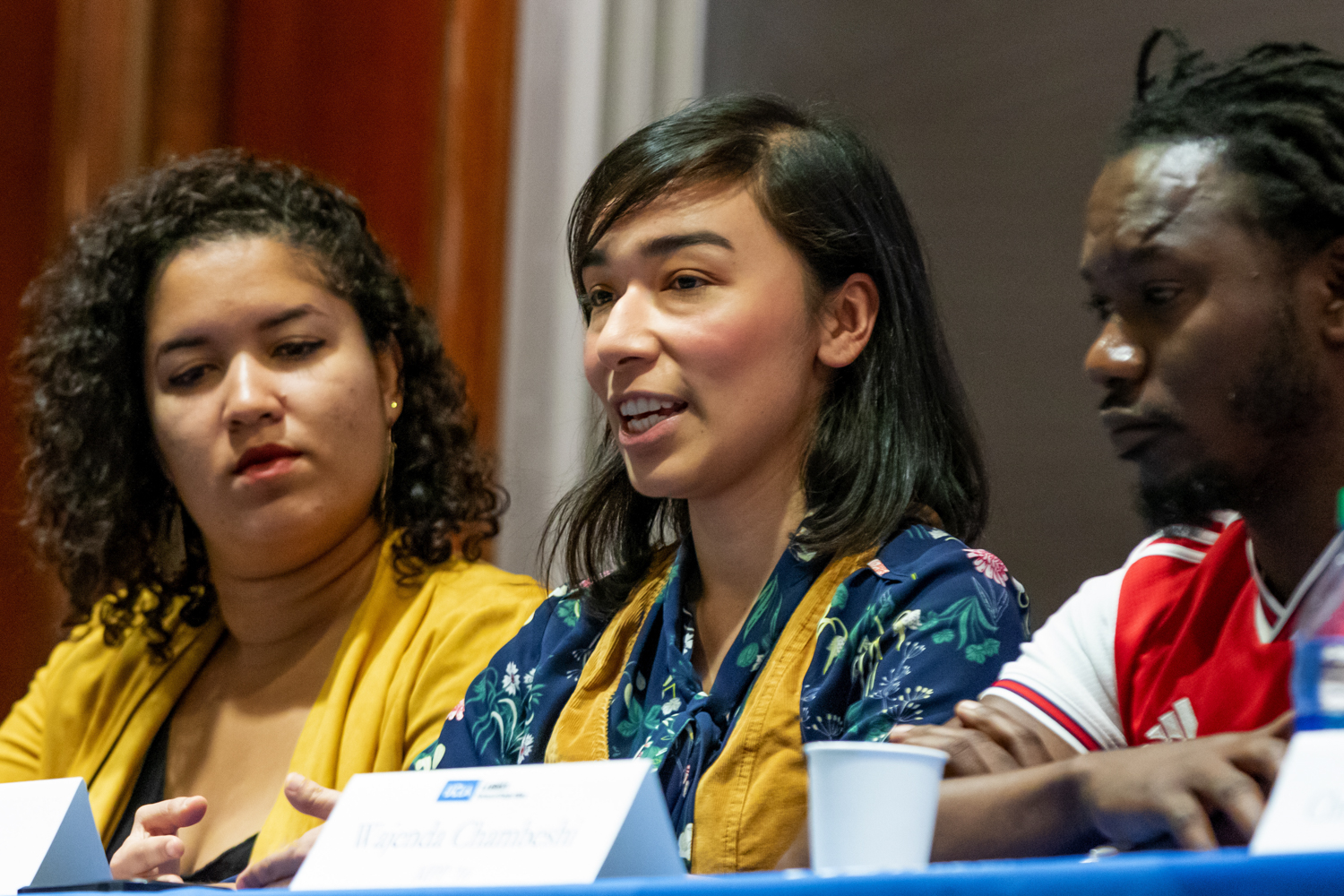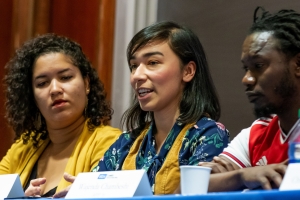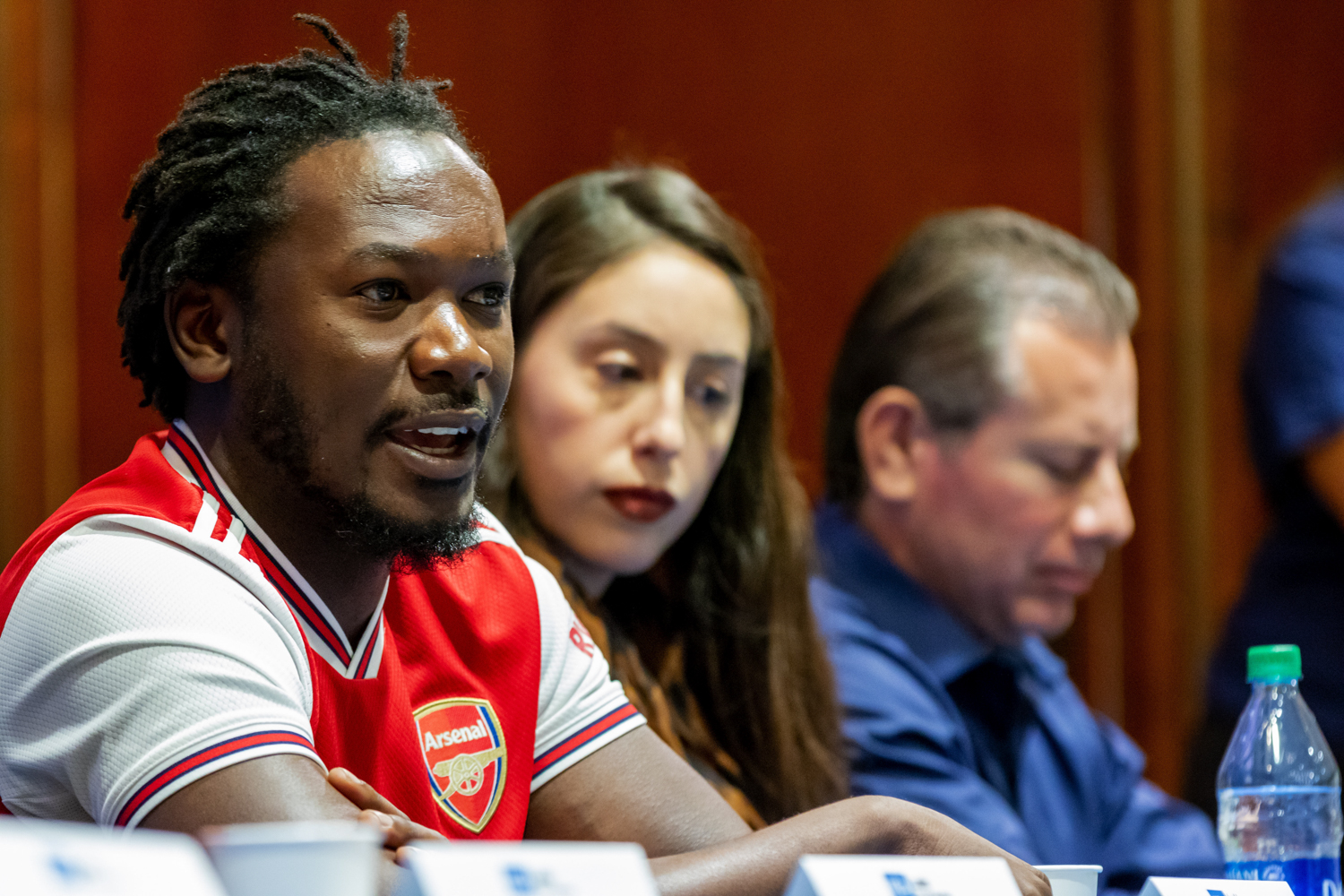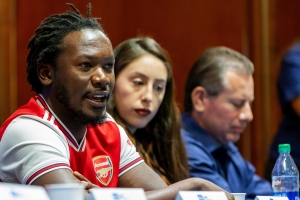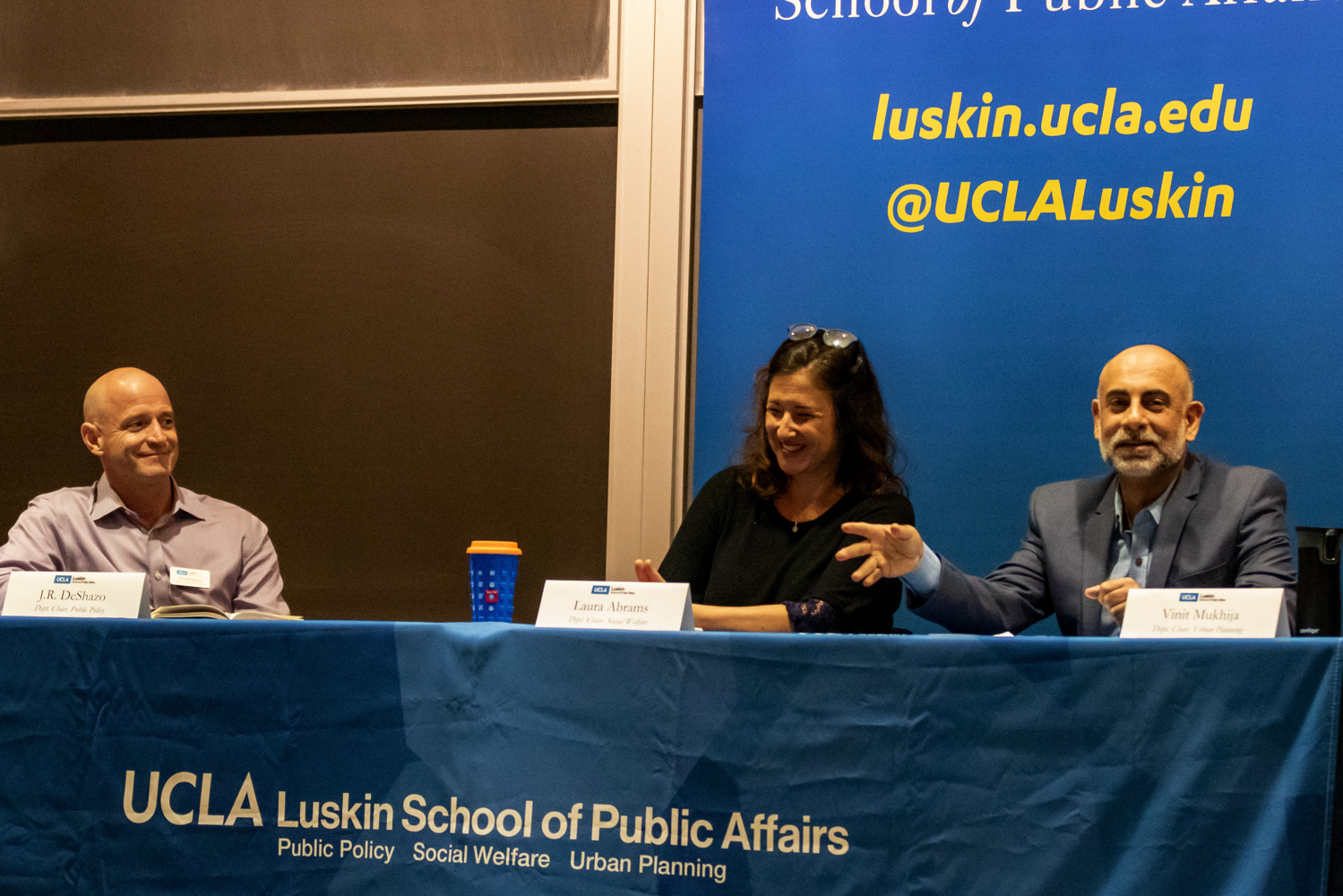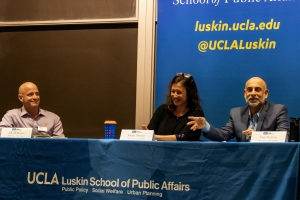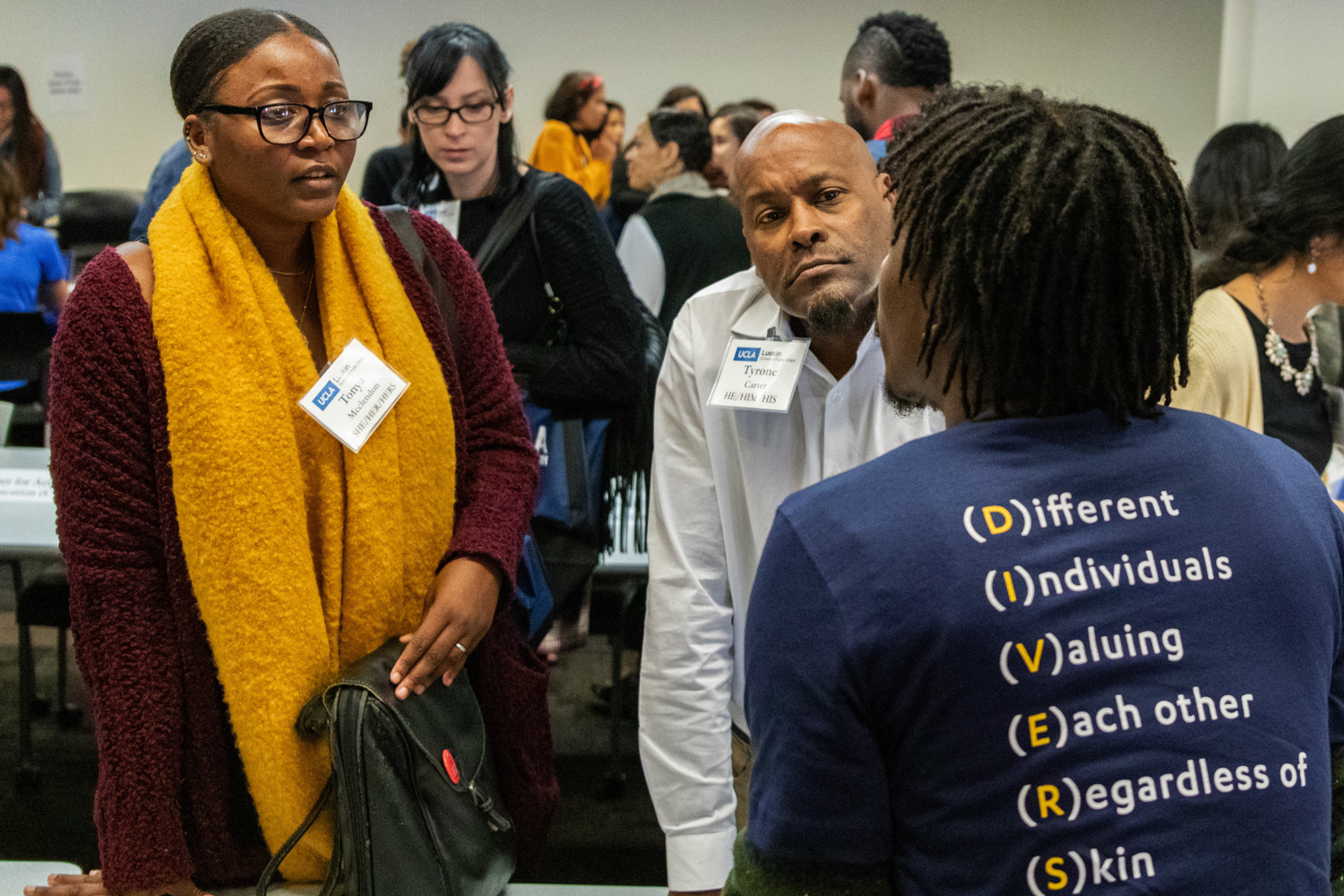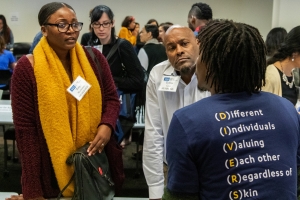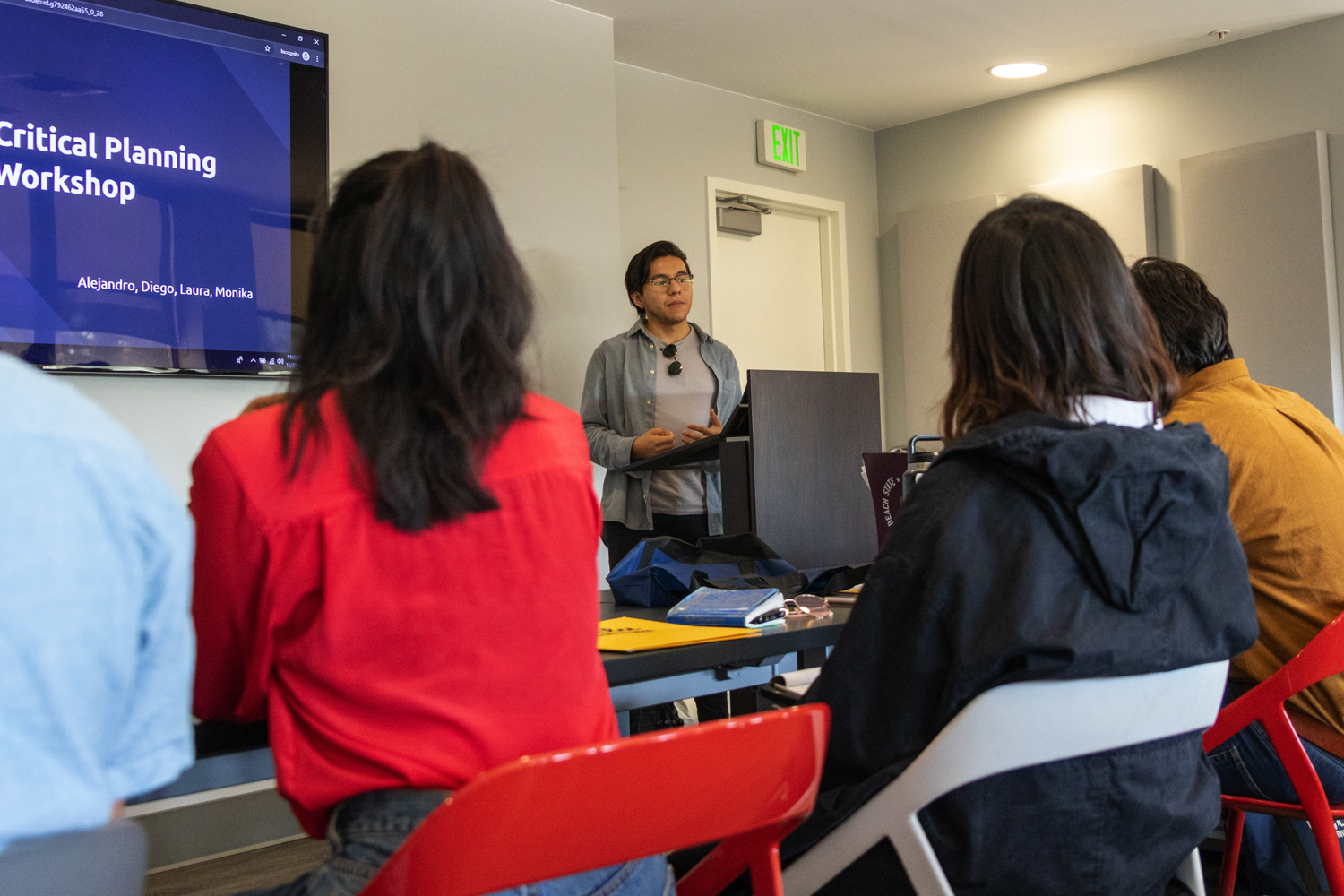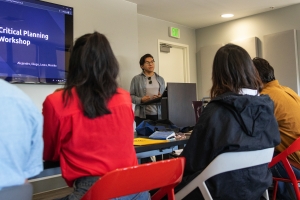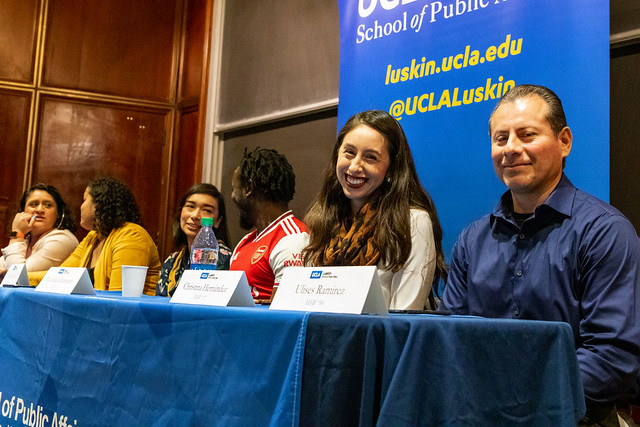By Mary Braswell
Tessa Azani remembers the look on her mom’s face when they came across the new major outlined on the very last page of UCLA’s transfer admission guide.
“Developing leaders engaged in social change,” began the text describing the bachelor of arts in public affairs.
“I start reading the description to my mom and I swear I saw her jaw fall on the floor. And she says, ‘They literally made this major for you. They knew you were coming,’ ” Azani recalled.
The transfer student from Moorpark College, who had been struggling to find a course of study that fit her goals, is now one of the “Trailblazers” — UCLA Luskin’s undergrad Class of 2021, the first group of students formally admitted to the new major.
Azani joins 69 other other students who launched into upper-division public affairs coursework in the fall. It’s a diverse group: Three-quarters are women, 67 percent identify as nonwhite, 13 are transfer students, and more than 20 percent come from outside California, traveling to UCLA from every region of the nation and from countries including Mexico, India, Great Britain and Austria.
In just its second year, the UCLA Luskin undergraduate program has grown to a total of more than 270 students, including 200 lower-division “pre-majors.” The Trailblazers are the program’s pioneers. They’ll be the first to experience one of the major’s signature elements: a three-quarter internship and seminar series in the senior year that will immerse students in their community. Their feedback will be crucial in shaping the program.
“I am in awe of our Trailblazers,” said Alexis Oberlander, director of student affairs for the program. “These students had other plans for their time at UCLA, they had other majors, but once they learned about our program they immediately connected to our mission and shifted gears without hesitating.”
That was true of the very first student to join the program. Long Hoang was a freshman in the spring of 2018 when he read about the major in the Daily Bruin. He sought out Oberlander, asked many questions, then eagerly registered as a pre-major.
As more joined the ranks, they forged a tight bond as they moved, almost en masse, from class to class, all trying to complete prerequisites in just one year.
“I really feel like we’ve connected as a class,” Hoang said. “It’s funny because moving from high school to a school with 30,000 people, I did not expect to have such a close-knit community.”
The public affairs major resides in a School known for its top-ranked graduate programs, and Hoang found an important mentor in a student pursuing a master’s in urban planning. As a teaching assistant, Michelle Einstein shared her passion for data science and digital mapping, and Hoang got hooked. He’s now pursuing a minor in Geographic Information Systems and Technology with an eye toward bridging his interests in data analysis, environmental health and community outreach. And he remains in touch with Einstein, who graduated last June.
Nate Singer’s journey to a public affairs education began when he moved from Sacramento to Los Angeles as he began high school. To get around town, he started taking the Metro public transit system, and the more he rode, the more he became fascinated with the way the region was stitched together.
“I realized how integral transportation is to the social structure of a city, the economic structure of a city,” he said. “The beauty of being interested in something like cities is they’re so dynamic and they’re so interconnected that you can kind of have your foot in many, many places at the same time.”
As a transfer student from Los Angeles City College, Singer knew two things: He wanted to study urban planning and he wanted to stay in Southern California. Google led him to the UCLA Luskin School of Public Affairs site, and he realized the undergrad program was a great fit. He became an early ambassador for the program by sharing what he learned with his LACC counselors.
Singer once owned a motorcycle but now travels by bicycle and bus. “I figured I can’t say car-based infrastructure is destroying our cities while also utilizing it on a daily basis,” he said.
While all the Trailblazers must show great discipline to meet their major requirements, Rimsha Saeed has a unique challenge: She aims to complete her degree in three years.
“The counseling team has been amazing, so accommodating and always trying to make sure that I’m on track,” said Saeed, who is interested in human rights law and policy.
She had looked at UCLA’s majors in political science and international development studies but gravitated toward the hands-on learning in the public affairs curriculum.
“I want to do something that makes real change in the world, and that was exactly what the public affairs major was offering,” she said. “It literally gives us the tools to make actual lasting change.”
Saeed says she is grateful for the “extras” the staff offers, such as bringing in dynamic speakers and sharing off-campus opportunities. “They’re always trying to help us get connections out in the world, and that’s really helpful for someone who’s trying to figure out what they want to do,” she said.
She has only praise for Associate Professor Meredith Phillips, the department’s chair who also teaches a course on using data to understand society.
“Professor Meredith, she’s probably really busy, but she would literally sit with me and explain everything as many times as I needed it. That really left an impression on me,” said Saeed, who had no previous statistics experience but is now motivated to pursue upper-division coursework. “I found it really interesting how you can combine two fields that seem so different, like social science and coding, and make it into something that’s used out there in the real world.”
For Tessa Azani, “everything fell into place” after she discovered the public affairs major. She had been seeking an education that paired policymaking and social welfare but wanted to veer away from politics, with all its “arguing and debating and winning and losing.”
“My brother and I both talked about how we loved the idea of being able to create change using government and politics — but we hate actual politics,” she said.
Her dream, she said, is to launch a nonprofit that encourages sports teams — and their fervent fan bases — to sponsor local schools. “Since almost every kid in America, K through 12, has to go to school, why don’t we make school the best place in the entire world?”Azani said.
The Trailblazers, Oberlander said, “are passionate about their life goals, all of which involve making our world a more equitable and just place, and they are willing to take the chance and put in the hard work to achieve those goals.
“I can’t wait to see them in their experiential learning capstones and beyond as they become the future leaders of our world.”
View more pictures of the Trailblazers on Flickr.
